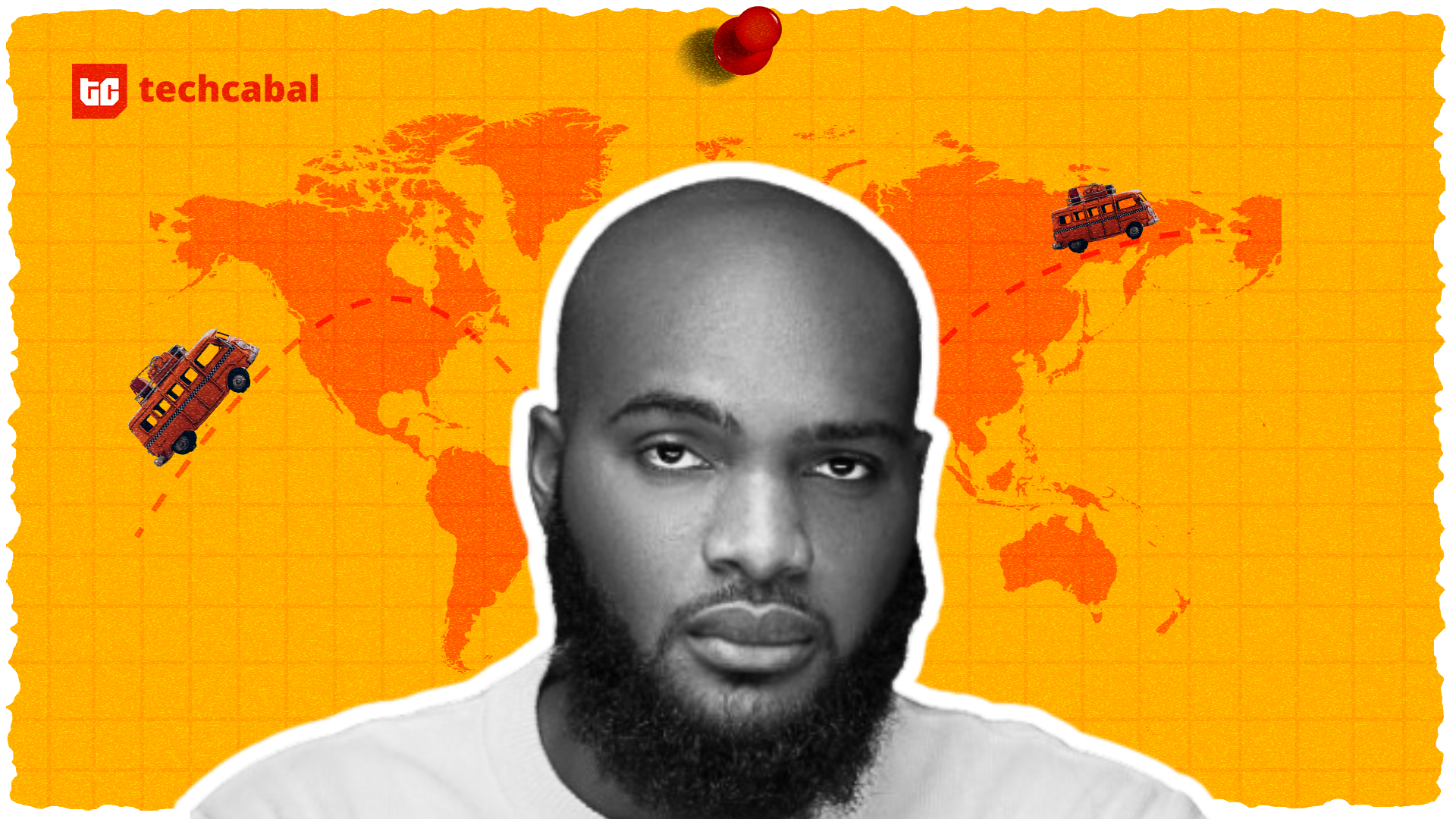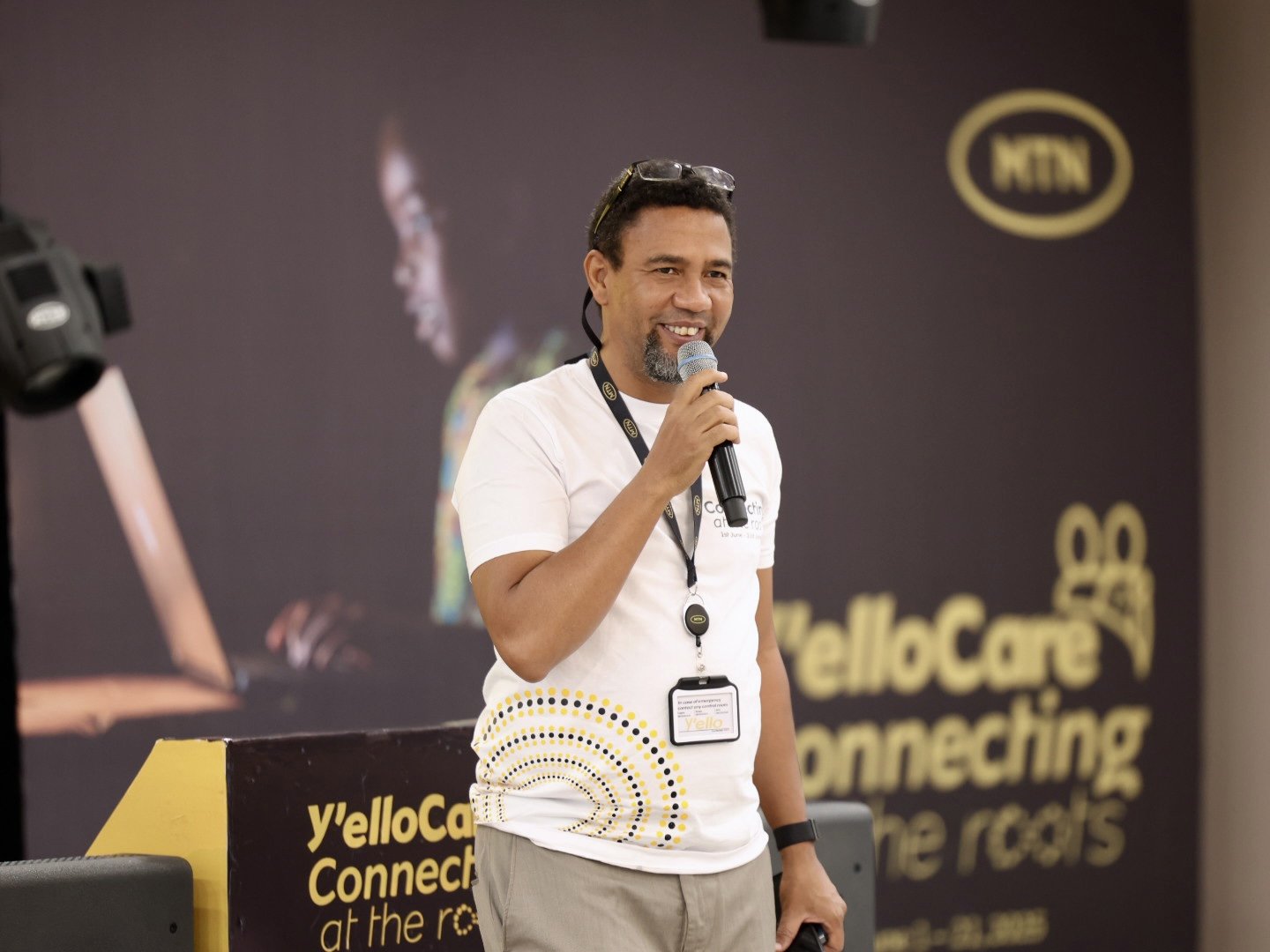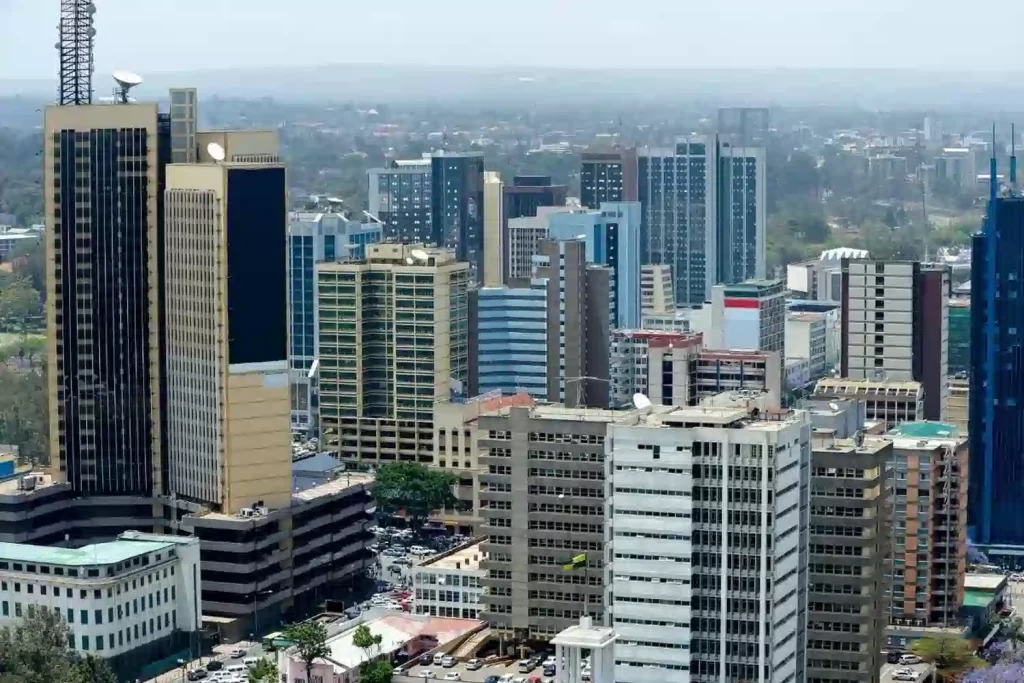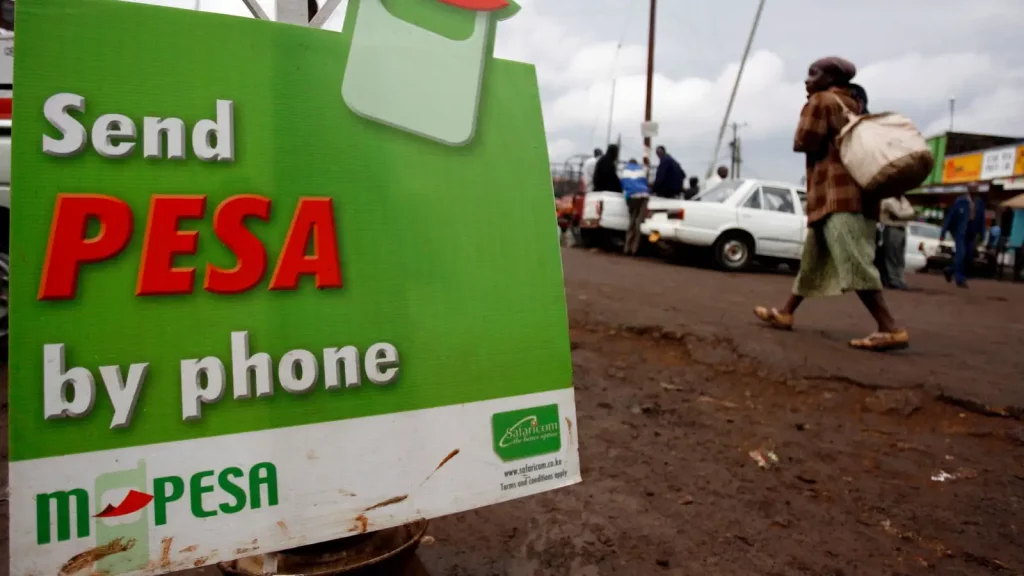Kemi
“At first, we were laughing. Isn’t that the Nigerian thing to do? Use humour to mask fear?”
When we speak to Kemi*, a fourth-year medical student from Nigeria, she is in an apartment in Hungary with her friends, all of whom had spent 5 days fleeing Ukraine.
“It’s funny because, a few years ago, I was on the other side of the border.”
As an international student, Kemi’s journey to Europe started in 2015 when she landed in Russia to start medical school. Before Russia, she was one of the medical students at the Houdegbe North American University (HNAUB) in Benin Republic who spent years under the deceit of an unaccredited faculty.
“I was in my fourth year when we realised HNAUB was duping people. I was called back home and my mother had already handled the transition process to Russia.” Although she had to start all over again in Russia, Kemi found the schooling environment better than what she’d experienced in Benin. “We had cadavers to work on, and most of it was practical. In Benin, they just lectured us, and we never got any real experience, even when we got to higher classes.”
By her third year, Kemi and other international students in Russia were told they would have to learn Russian because the remainder of their course would be taught entirely in Russian. “It was impossible,” she says. “We were learning by speaking, by repeating what our lecturers said to us. To learn a new language, coupled with our course, was impossible. To make it worse, they said we couldn’t transfer to another school abroad while in Russia.”
The alternative given to them was to leave Russia and apply for new student visas from their home countries. Fortunately, someone was able to help them process admissions into a university in Kyiv, and that’s how Kemi found herself in Ukraine in 2018.
“Ukraine was different from Russia,” Kemi says. “The schools weren’t as hands-on as Russian schools were, but they were just as good. The environment also came with an added advantage: the opportunity to do business.”
Ukraine is one of many countries where intakes with student visas aren’t allowed to work formally without work permits. It’s difficult to get employers to hire English-speaking students for everyday jobs. “It’s not like America where you can get jobs flipping burgers at McDonald’s; there are no jobs like that here,” Kemi says. Students, all of whom are given temporary residence permits, can work unofficially or do small businesses by registering as private entrepreneurs.
Ukraine is home to 76,000 international students, and about 19,000 are of African descent. This number keeps growing by the year for a number of reasons. Life in Ukraine is quite cheap, with most students able to survive on less than $200 per month or $2,500 per year, a 300% difference from the US where most international students would require an average of $10,000 per year to live. University acceptance rates are also higher, and students find it easier to transfer from Ukraine to other western countries.
According to Kemi, who owns a catering business, she used to make as much as $1,000 a month with a hectic schedule. It was enough for her to pay her off-campus rent, afford other necessities, and still have some change left for flexing.
But with the onset of the war, she lost everything.
They first heard the sirens at 3 AM on the 24th. When they went outside, Kemi and her friends found the streets of Kyiv full of people who were rushing in and out of department stores stocking up on supplies.
“We bought whatever we could,”Kemi says. On the second night, they tried to stay in a bunker close to home but returned home when the bunker turned out to be chilly. “On the third morning, the tremors woke us up. Everything rattled and the whole building shook. We didn’t even think twice, we packed our documents, a few other things, and left.”
With her friends, Kemi went to the train station where they met hundreds of people waiting for the trains to come. Armed soldiers announced to the crowd that only women and children would be allowed in—no men. “What we didn’t know was that by ‘women and children’ they meant European women and children’. We had to fight to get to the trains, and even when we got on, we were pushed off them.”
That first day passed and Kemi and her friends couldn’t get on any of the 2 trains that stopped in Kyiv. They tried to opt for road transport, but the cab drivers were charging $1,600 for trips that would normally cost $50. “We couldn’t afford that, so we went back, and on the second day, we were finally able to get on a train leaving Kyiv.” There was no space to sit or squat on the train, so they stood for 7 hours near the door, from where they were blasted with minus-0° winds.

“The second train station at Lviv was no better. At least in Kyiv, we could see that the trains were full. At Lviv, there were spaces on the trains, and they only let Ukrainian women and men on. We had to fight again till we were able to get another train to Uzhhorod where we stayed for 2 nights before we left for Hungary.”
While they found Uzhhorod quiet and peaceful compared to Kyiv, their stay was cut short when Ukrainian soldiers burst into their hotel room on the second night, questioned them, and searched through their phones for photos of Ukrainian soldiers.
“We wanted to stay there but it was obvious we weren’t welcome,” Kemi says.
They left for the Hungarian border where they were asked if they would apply for refugee status or for temporary residence permits. “Refugees status means going back to Nigeria, and no one wants that. The authorities would take our passports, too, and the only pro is the free accommodation and feeding.”
They opted for the 30-day residence permit instead and they’ve been fending for themselves since then.
Akam
Akam, a Nigerian aerospace engineer living in Ukraine, was woken by bomb blasts around 5 AM and he felt his building vibrating. He looked out through the window to see what was happening and saw hundreds of people trying to escape the bombings that were occurring simultaneously.
Akan recalls that he could only pack the belongings that he could carry and get to the next available shelter even though he didn’t know which building could be hit next.
When we speak with Akam, he’s fled to Slovakia, leaving behind a flourishing life and career in Ukraine.
Despite the difficulty he faced in moving away from the war by train—a relatively safer means of transportation—he was able to get to Bratislava, the capital city of Slovakia.
The train station was crowded with families trying to board a train from Kharkiv to Lviv, a Ukrainian city that is just 50 miles from the border of Poland—the safest place, to be at the time—as it allowed citizens to move to Poland, a NATO country; and attacks on it due to its proximity to the Polish border carries serious repercussions for Russia.
Since the war started, Akam has been in constant communication via phone lines and WhatsApp with his family, but he shields them from any graphic or controversial information about the war to prevent them from being more worried than they already are. “You can’t tell them that they’re dropping bombs in front of you.” I filter what I share with them.”
While Akam wasn’t able to get to Lviv, he was fortunate enough to get a train to Uzhhorod, a city 2 kilometres away from Slovakia. But, due to the crowds on the roads, he had to walk for 30 minutes. Upon getting to Uzhhorod, it took him 12 hours to finally cross the border into Slovakia.
Akam arrived in Ukraine as a student empty-handed, but with bags of dreams and heightened hopes for his future, and when he started acquiring properties in this foreign land, he felt fulfilled. Over the years, he got a good-paying job, attained job security and peace of mind that allowed him to comfortably take care of himself and support his family back in Nigeria.
Devastated and filled with hurtful memories, Akam does not go into the details of how much he has lost. “You wake up one morning to find that all the things you have spent years acquiring are gone.”
Fortune
For Fortune, Russia’s invasion wasn’t cause for alarm; he’d had some experience with the Ukrainian crisis. In 2014, during Russia’s first invasion to recover Crimea, Fortune’s brother was living in Luhansk, the heart of the war in Donbas, which claimed over 13,000 lives, 3,000 civilians included.
“When my mom asked if he wanted to return home, my brother said yes,” Fortune says. “He was able to buy a ticket and get on the next flight home as his city was being bombed.”
A year later, in 2015, Fortune packed up his bags and left Nigeria for Ukraine. Before the war, there were about 19,000 international students of African descent studying medicine in the east European country, and while some, like Kemi, think highly of Ukraine’s educational system, Fortune’s stethoscope hears something different.
“To be fair, I haven’t gone to any other universities, but the one in Ternopil isn’t that great.” According to Fortune, the lecturers are flaky, and if students really want to succeed, they can’t depend solely on lecturers or their lectures. “But I’m done now,” Fortune says. “I finished last year, and I was going to leave Ukraine this year. This war just speeds things up.”
While Fortune’s brother was able to leave Luhansk easily, Fortune’s own journey out of Ternopil took 2 weeks of careful planning and deliberation. “The situation is different from 2014. You can’t get out that easily.”
A day after Russia’s invasion, Ukraine’s president Volodymyr Zelenskyy instituted martial law and grounded commercial flights. The reason isn’t so far-fetched. In 2014, a Russian missile shot into a commercial flight passing through Ukrainian airspace, killing 283 passengers on board. Ukraine doesn’t want a repeat on its land, so people like Fortune who want to go home have to find other means.
“I waited,” Fortune says. “On the first day, everything was a bit calm. People were running around in the streets buying provisions, and my friends, and I joined them. But when the warning sirens came the second day, and we started to feel tremors, people panicked and started to leave in droves.”
But Fortune declined to join his friends when they left. “It didn’t make sense at the time,” he says. His patience paid off when some of his friends returned from the Polish border days after.
“I know people who were at the border for days, freezing their asses off trying to get out. I know some who were beaten and pushed,” Fortune recalls. To him, it’s not all racism though. “Yes, they didn’t want black people to cross through first—that’s no surprise. But I also think there were too many people at those borders; everyone was on edge. They got the worst of it, the ones who tried to leave in that first week; they saw the worst of everything.”
Two weeks after the invasion, almost all the black students had left Ternopil, and only Fortune and his friends were left. “When we went out, people glared at us as if to say, ‘Why are these ones still here?’ That’s when we knew it was time to leave.”
He packed a suitcase, left most of his belongings behind, and hightailed it to the Hungarian border where French volunteers were helping African students fill out applications for refugee status and living permits.
What’s next?
What’s next for Fortune is writing the Medical and Dental Council of Nigeria (MBCN) qualifying exams in Nigeria, and then finding a way to get to the UK. “Before all this,” he says. “I was already applying for visas to leave Ukraine for the UK where my brother is.”
Kemi’s journey is not so certain. “We’re still not sure of what’s going to happen to all of us. They say we can transfer to Hungarian schools, but it’s not certain yet. I’d still prefer to finish in Ukraine, though.” She hopes that the war will end before her 30-day permit is up so that she can return to her apartment in Ukraine where most of her belongings are.
When we ask Akam about his next steps, no response comes.
*Name has been changed to protect the owner’s identity.
Digital Nomads is a weekly column on TechCabal where we explore the everyday lives of Africans who leave their home countries to study or work elsewhere, and Africans who leave their conventional jobs for new professions in tech. A new episode drops every Wednesday. If you think your story fits the Digital Nomads bill, reach out to us here.




















